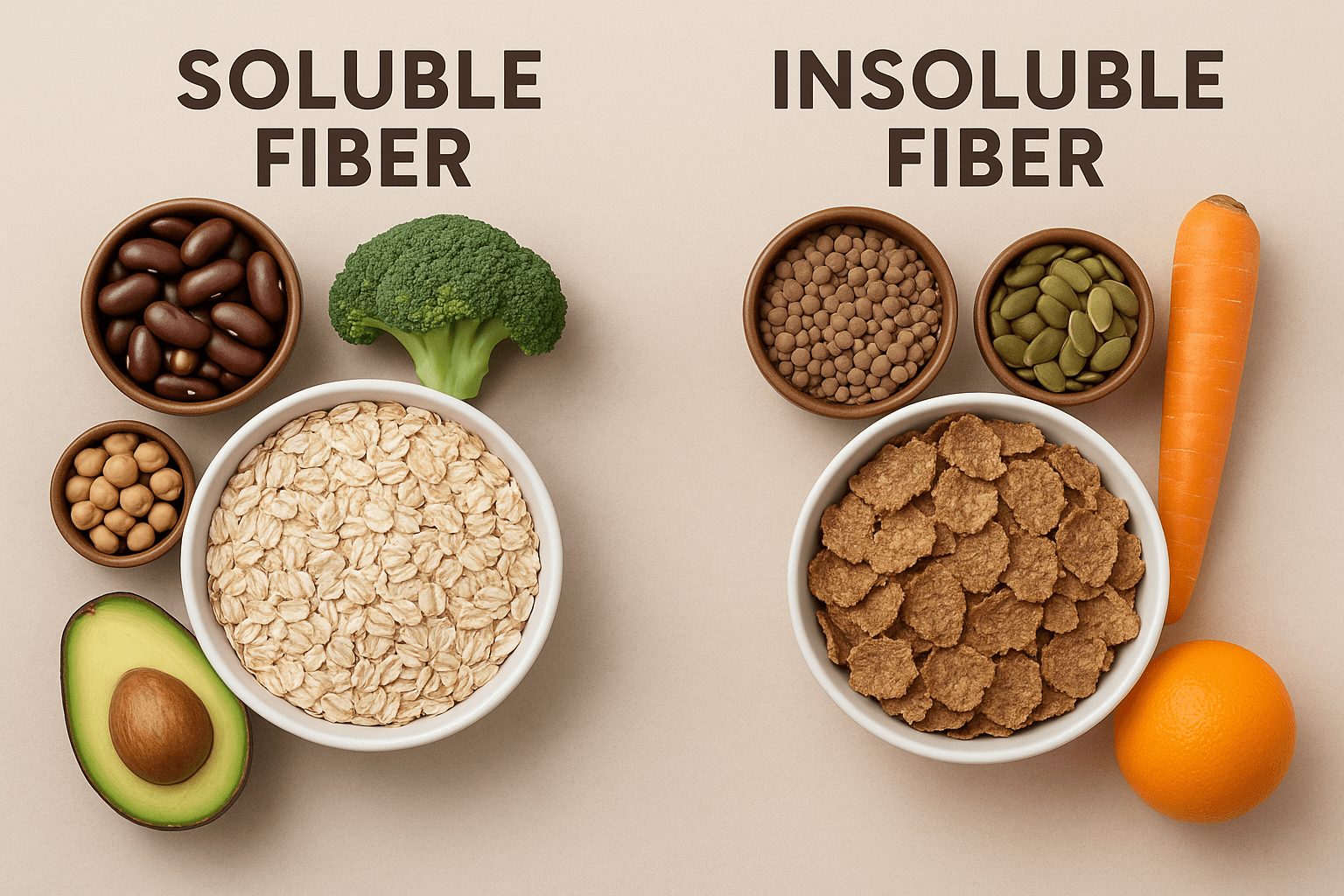Weight Loss: Are You Losing Fats, Water, Bones or Muscles?
Weight loss has been heralded as a way to combat several chronic diseases such as obesity, diabetes, cancer, cardiovascular diseases. However, when we think of weight loss, most people just think about the numbers on the weighing scale, doing whatever it takes to see the number go down. However, what matters more is what exactly are you losing?

Calorie Restriction for Healthy Weight Loss
With age, muscle mass and bone density tend to decrease, while fat mass may increase if not offset by lifestyle changes. Calorie restriction is an effective strategy for healthy body composition and offers significant protection against many chronic diseases. Calorie deficit prompts the body to use stored fat for energy, reducing fat mass over time. By reducing excess fat, especially visceral fat, it positively impacts our metabolic health - insulin sensitivity, blood pressure, and hormonal balance. This lowers the risk of various diseases. Hence, weight loss should be targeting fat loss for individuals seeking to reduce body weight in a sustainable and healthy manner, instead of affecting other tissues, including skeletal muscle, bones, and organs like the heart and liver - impacting muscle strength, resting metabolic rate, and bone density.
Understanding Our Body Composition
The human body is made up of different elements like water, large molecules (like proteins and fats), and minerals. These elements form cells, tissues, organs, and organ systems, which all work together to keep us alive. Body composition refers to the proportions of different components within the body, such as water, fat, muscle, bone, and other tissues, providing insight beyond just body weight. Total Body Water (TBW), which includes water within tissues, blood, bones, and fluid compartments, accounts for about 50-70% of a person's body composition.
Overview of the main components of body composition 1 2

Temporary Weight Loss: All From Water
Most of the immediate weight loss comes from water loss as a result of sweating. The body can lose around 0.5 to 2 litres of water per hour, depending on temperature, humidity, and individual sweating rate. This amount of fluid loss can lead to a temporary drop in body weight. For example, losing 1 litre of water equals a weight loss of about 1 kilogram. This weight loss from water is short-term and does not reflect a decrease in body fat or lasting weight reduction. For lasting weight loss, fat reduction through calorie deficit and exercise is necessary, as losing water does not alter body composition in the long term.
Importance of Protein during Weight Loss
During caloric deficit state often with insufficient protein intake, the body may start breaking down muscle tissue for amino acid and energy. Muscle tissue is metabolically active, meaning it burns calories even at rest. Loss of muscle can slow down metabolism, making it harder to maintain or continue weight loss. Preserving a healthy percentage of muscle mass in the body helps the body in:
- Regulating healthy blood sugar levels
- Maintaining healthy fat levels (like triglycerides and cholesterol) in the blood
- Controlling chronic low-grade inflammation
- Maintaining strength and preventing frailty
- Maintaining bone density, and
- Maintaining organ functions including the heart and the liver
- Increasing basal metabolic rate
Bone Loss during Weight Loss
On one hand, reducing 10% of the body weight for obese individuals helps to reduce co-morbidities, on the other hand, studies showed that a 10% weight loss results in 1–2% bone loss at the various bone sites 3. Obesity increases bone mass due to the extra load on the skeleton and higher levels of bone-supporting hormones like oestrogen, leptin, adiponectin which are produced by fat cells and ghrelin in the guts which stimulates growth hormone.. Frequent weight fluctuations (weight cycling) or even a 5% weight loss can increase fracture risk as weight loss decreases the bone-supporting hormones, potentially leading to higher breakdown of bone tissues and weakening bone strength. In addition, hormones like cortisol may rise during weight loss as a result of acute fasting or moderate weight loss, while hormones like IGF-1 that promote bone growth may decrease. This increases bone loss risk due to the breaking down of bone tissues and/or decreases calcium absorption.
The Focus Should Not Be Weight Loss

The best way to think about weight loss is to to focus on losing fats and building muscles to be stronger and healthier over looking at weight as a number. . This could be achieved by adopting the 6 pillars of lifestyle medicine in your weight loss journey. “Lifestyle medicine is a medical specialty that uses therapeutic lifestyle interventions as a primary modality to treat chronic conditions including, but not limited to, obesity, cardiovascular diseases, and type 2 diabetes.4”
The Holistic Solution for Weight Loss
For sustainable and healthy weight loss, here are 4 crucial success factors:
- Behavioural change
- Exercise
- Calorie restricted diet
- A balanced AND progressive approach
This method also helps to protect lean body mass, bone health, and aerobic capacity, ensuring that weight loss is achieved in a way that enhances both fitness and overall well-being. In addition, lifestyle medicine also addresses the impact of stress and the lack of sleep in your weight loss journey as the hormonal disturbances brought about by them may sabotage your efforts in calorie restriction and exercise. The adoption and sustaining of health-promoting behaviours—including eating a well-balanced diet comprising mainly whole-food and plant-forward foods, increasing physical activity, managing stress, getting enough restorative sleep, reducing and avoiding risky substance use like tobacco and alcohol, and surrounding one with positive social connection - is a holistic and evidence-based approach towards sustainable and healthy weight loss.
Importance of Health Coaching
Despite knowing all these, we know how difficult it is to adopt and sustain health-promoting habits, this is where health coaching comes in handy. A health coach supports you and journeys with you in a few ways. First, the health coach helps to clarify the confusion about the various weight loss myths and methods. In addition, the health coach works with you to choose the habits and techniques that best suit your needs and values. Most importantly, a health coach is there to encourage and remind you of your achievements during one of those days when you feel like giving up. At CareSense, you will have access to Mandy, your AI-health coach, and a human health coach too (should you need)!
References:
- Withings. (n.d.). Body cardio: What are the normal ranges for body composition? Withings Support. Retrieved December 1, 2024, from https://support.withings.com/hc/en-us/articles/220035767-Body-Cardio-What-are-the-normal-ranges-for-body-composition
- Gallagher, Dympna et al. (2000). Healthy percentage body fat ranges: an approach for developing guidelines based on body mass index. The American Journal of Clinical Nutrition, Volume 72, Issue 3, 694 - 701. https://doi.org/10.1093/ajcn/72.3.694
- Shapses, S. A., & Riedt, C. S. (2006). Bone, body weight, and weight reduction: what are the concerns?. The Journal of nutrition, 136(6), 1453–1456. https://doi.org/10.1093/jn/136.6.1453
- American College of Lifestyle Medicine. (n.d.). What is lifestyle medicine? ACLM. Retrieved December 1, 2024, from https://portal.lifestylemedicine.org/Portal/ACLM/About/What_is_Lifestyle_Medicine_/Lifestyle_Medicine.aspx


